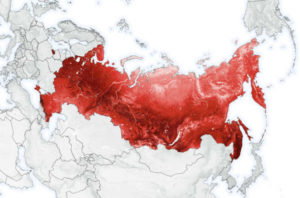
As the war in Ukraine drags on, the world is feeling the price of excluding Russia from the global economy. Ever since Russia invaded Ukraine, Western nations have been levying heavier sanctions, and Russia has used its own economic power as a blunt instrument to hurt Ukraine’s friends in the West. Jessica Rawnsley explains in the Financial Times how the war is wreaking havoc on global supply chains, writing:
The war in Ukraine is wreaking havoc on global supply chains. Western sanctions in response to the invasion, price shocks resulting from Russia’s weaponisation of energy, and disruptions to goods shipments have punctured normal procurement practices. The reverberations are being felt across the span of global industries — but the effects on the chemicals and agribusiness sectors have been particularly severe.
“Energy-intensive industrials and European fertiliser producers are the two groups that have been hit the most,” says Sebastian Bray, lead chemicals analyst at German investment bank Berenberg. “Any chemical company that is power or gas intense has generally not had a good past few months.”
The world had come to rely on Russia for much of the energy and raw materials that power the food chain and global industries. Though accounting for less than 3 per cent of global gross domestic product, Russia, Ukraine and neighbouring Belarus play an outsized role as producers and exporters of agricultural commodities, minerals, fertilisers and energy.
Russia is the world’s principal supplier of fertilisers and their core components. It accounts for roughly 45 per cent of the global ammonia nitrate market, 18 per cent of the potash market, and 14 per cent of global phosphate fertiliser exports.
Svein Tore Holsether, chief executive of Norwegian chemicals group Yara International, one of the world’s largest producers of nitrogen-based mineral fertilisers, says the disruption following the invasion of Ukraine was rapid and profound — piling pressure on already tight market conditions. Even before the war, global fertiliser supplies had been stretched by Covid shutdowns, labour shortages, and general volatility.
“The value chains were incredibly integrated,” he says. “When you look at the map — where Europe is, where Russia is, where the locations for natural resources are — these chains have been created over decades. Even during the coldest parts of the cold war, these products kept flowing so business was running. And that all changed radically in the course of a few days.”
Even during the coldest parts of the cold war products kept flowing. That changed in the course of a few days
Svein Tore Holsether, Yara chief executive
Though no direct bans have been levied on food and fertiliser products from Russia, western nations say the war has cut off Ukraine’s food exports and Moscow is blaming sanctions for restricting its shipments.The invasion and those western sanctions swiftly blocked access to suppliers, while Russia’s suspension of gas flows to Europe has caused energy costs to soar. Producing fertiliser components such as nitrogen and ammonia requires vast quantities of natural gas: it accounts for some 80 per cent of production costs. But gas prices have surged 200 per cent in Europe this year, hitting record highs in August (although wholesale gas prices have since dipped, as nations build stockpiles).
Read more here.



